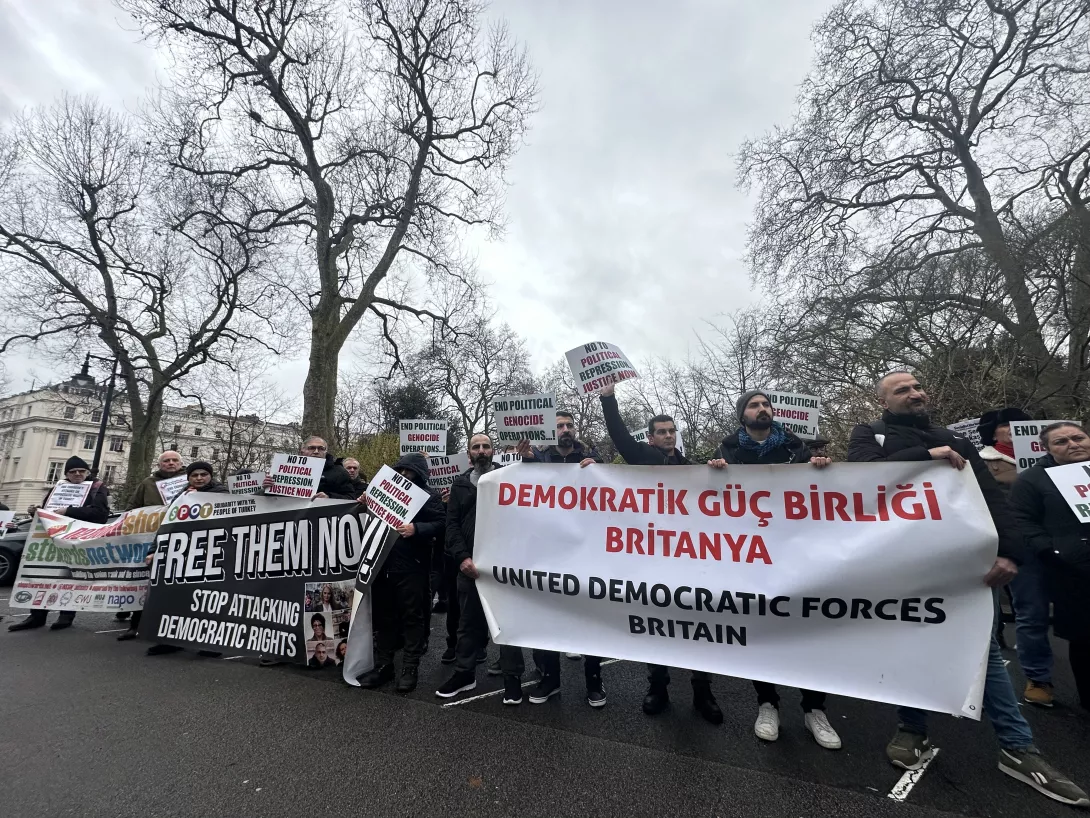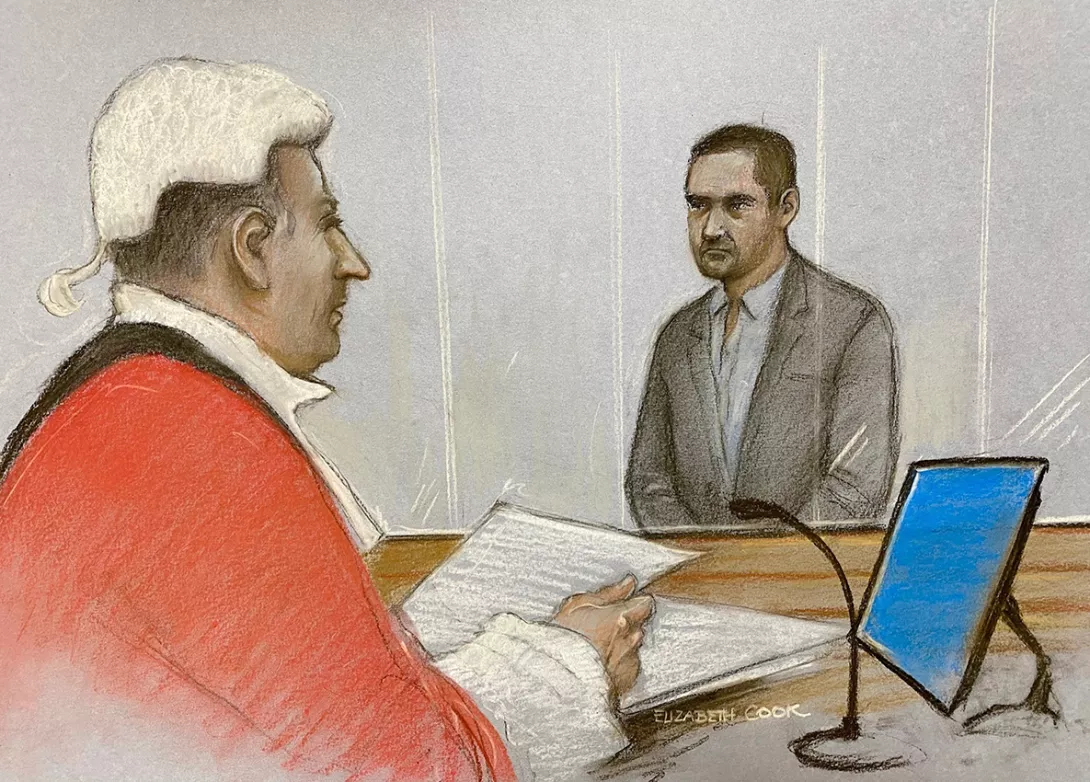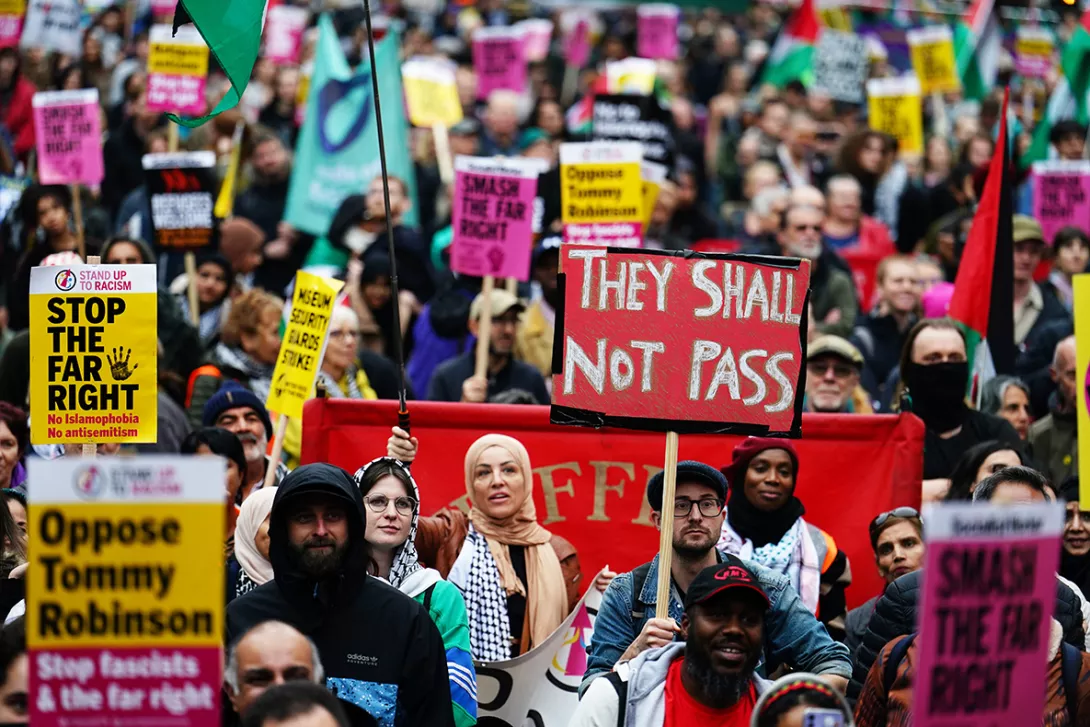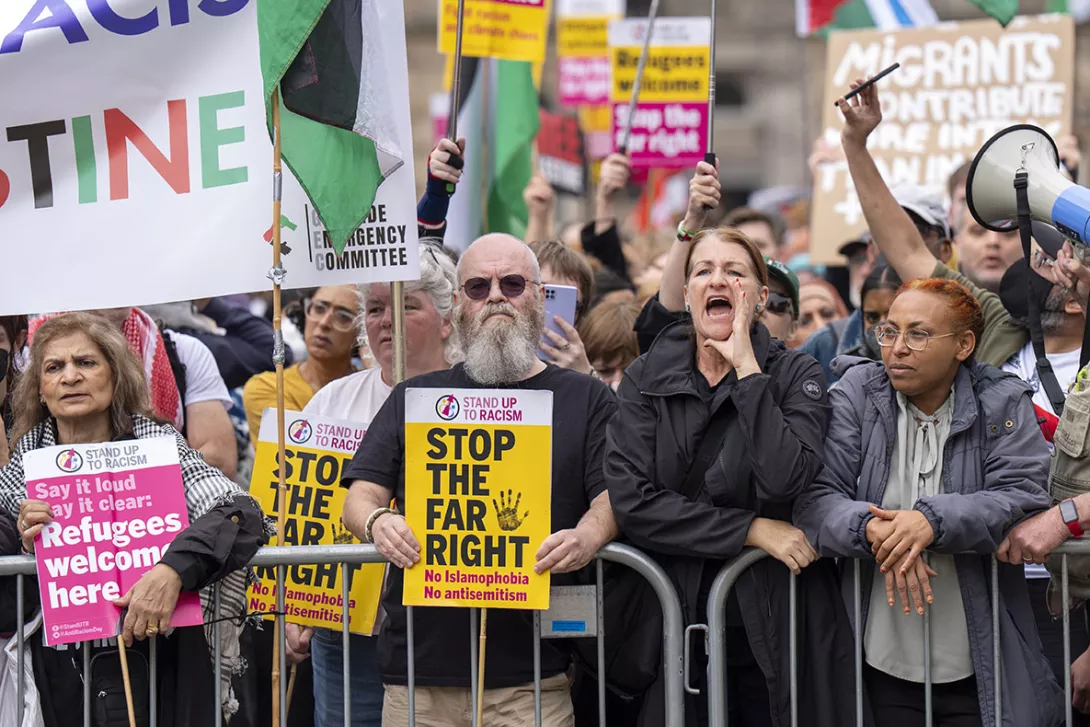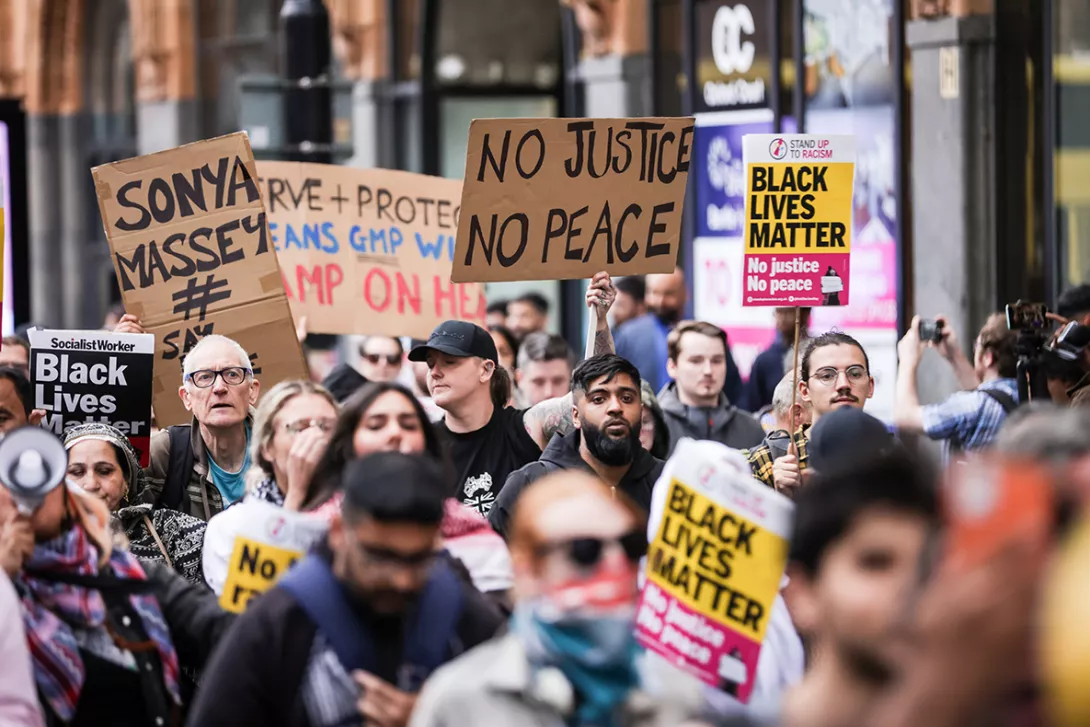Anti-racists to mobilise against Tommy Robinson's call to protest
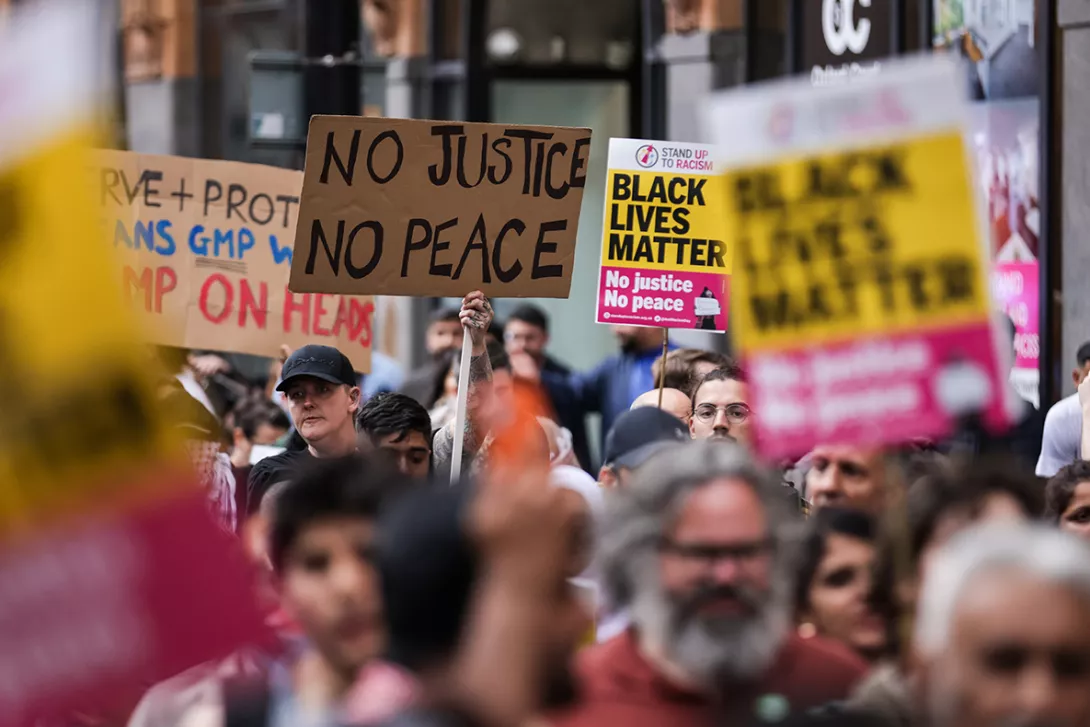
ANTI-RACISTS will be mobilising to counter fascist figure-head Tommy Robinson’s planned demonstration next month.
Mr Robinson, whose real name is Stephen Yaxley-Lennon, has announced a march outside Downing Street on October 26, to show his film “Lawfare” about the summer far-right riots.
In response, Stand Up To Racism (SUTR) is calling on all anti-racists, anti-fascists, trade unions, faith groups and rights organisations to mobilise on a “massive and unprecedented” scale for the day.
More from this author
Similar stories


